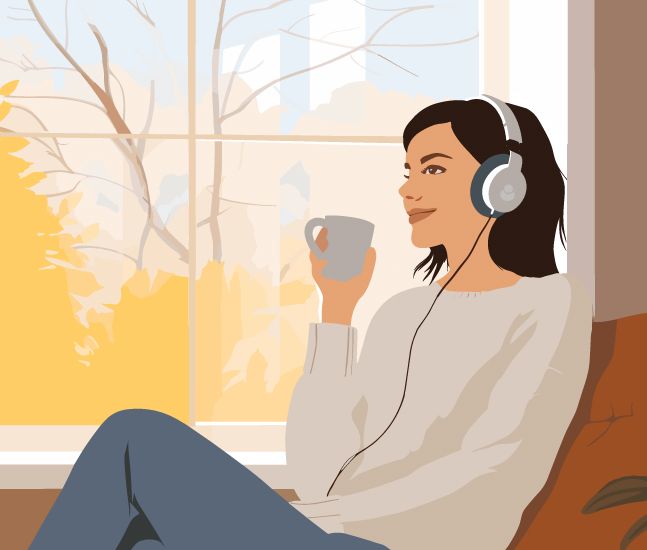Getting through challenging times is difficult. Doing activities that uplift, calm and restore your spirit can improve our mental health. Discovering what works for you might need some patience and time. Understand that every step is a move towards understanding yourself better.
The building blocks
While advice about sleep, nutrition, movement and connection might seem generic, they create a strong foundation for mental wellbeing. Including them in your life doesn't need to be perfect – it’s just about trying and being aware.
Sleep
A restful sleep improves decision making, memory and emotional regulation. Creating sleep-friendly habits such as a consistent sleep schedule and creating an ideal sleep environment can be life changing.
Tips for better sleep:
- Use an eye mask or blackout curtains to block out light.
- Use earplugs or listen to calming music, an audiobook or a podcast.
- Go to sleep and wake up at the same time every day.
- Stop or reduce screen time, work, caffeine and alcohol in the few hours before bed.
- Allow 30 minutes to relax and wind down before bed.
- Try to get your bedroom to a cool, comfortable temperature.
- Get some natural light and exercise throughout the day to promote good sleep at night.
If you find it difficult to fall or stay asleep, try Just a Thought’s Managing Insomnia course.
Nutrition
Food not only nourishes the body but also connects us to our heritage and community. Eating a balanced diet means feeding both your body and your mind.
Here are some things to try:
- Think of some meals that are easy and fast to make if you aren’t up to cooking every day. Search for “easy, fast dinner recipes” online for inspiration.
- Eat something comforting that makes you feel good. This could be a family recipe, a cultural delicacy or your favourite food.
- Share a meal with someone. Eating together and sharing food can be a great way to connect.
If you’re unable to pay for food right now, foodbank.co.nz and Work and Income may be able to help.
Movement
Physical activity can be a source of joy, health and connection. You might exercise for the endorphins, to help with sleep, to improve your health, to be able to play with your mokopuna, to connect with te taiao, to connect with people or to spend time by yourself.
Try walking around the garden or around the block to get you started. Whether it's joining a local sports team or dancing to your favourite tune, find what moves you.
Connection
Embrace the power of relationships. Connect with your roots, engage with your community and cherish the bonds you form. From casual meet-ups to volunteering, every interaction can add value to your life.
For more information about connecting with others, see our identity and community and relationships pages.








